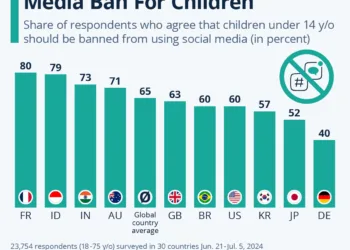Social media platforms are increasingly incorporating paid features that enhance user experience while also boosting visibility and status on their networks. The most troubling of these features is the paid verification checkmark. It’s a pay-to-win system, and honestly, I’m quite fed up with it.
1 It’s Tougher to Distinguish Authentic Accounts
Before the rise of paid verification, identifying real accounts from fake ones was relatively straightforward. Blue checkmarks were once known as verification badges, specifically designed to confirm that an account genuinely belonged to the person, business, or organization it claimed to represent. These badges were not tied to a subscription or a paid service.
Now that some social media platforms allow users to purchase these badges, the distinction between genuine and fake accounts has become increasingly murky. This compromises the overall experience of social media for me, making me question the authenticity of accounts that display this mark. For instance, during a recent test on X (formerly Twitter), we found that some verified accounts responded to bot-generated prompts, indicating that verification doesn’t necessarily guarantee that an account is a legitimate person.
It’s exhausting to have to take on the responsibility of verifying an account’s authenticity myself. I’d much rather be enjoying spontaneous interactions online than sleuthing for authentic accounts.
2 It Encourages the Spread of Misinformation
With premium features offered by services like X Premium, accounts with dubious credibility can reach a wider audience than ever before. In the hands of the wrong people, this access can become a weapon for disseminating misinformation.
This situation frustrates me immensely because, in addition to validating accounts, I now find myself needing to fact-check information shared on the platform. This task can be not just time-consuming, but also incredibly complicated when navigating complex topics or breaking news.
3 It Fosters Inequality Within the Platform
Similar to what we see with pay-to-win video games, paid features on social media create disparities among users. The most aggravating aspect for me is that when two people engage in a debate, the one with the checkmark is likely to receive more favorable treatment. Many users are unaware that these badges are now just superficial indicators of credibility.
Moreover, these verified accounts often receive an artificial push due to algorithmic biases on certain platforms. This creates an uneven playing field, disadvantaging those who choose not to pay for added visibility.
4 Paid Credibility Reflects Poorly on Everyone
As more people recognize that paid verification often equates to paid influence, this presents a double-edged sword.
On one side, it signals a decline in the perceived value of verified badges. However, those who genuinely appreciate the perks of these features are often grouped with individuals merely chasing after clout.
This shift negatively impacts everyone involved, including social media companies, as it undermines their credibility.
5 It Simplifies Scamming Users
While individuals can always take steps to safeguard themselves on social media, platforms also have a responsibility to prevent misuse of their systems that could endanger users. Accounts equipped with paid features can exploit their false sense of legitimacy to scam unsuspecting users.
On X, users can control who can message them. However, there’s a setting that allows verified users to send message requests, effectively letting people pay for broader access to others’ inboxes without the user’s explicit consent.
Although paid verification is unlikely to disappear anytime soon, it’s crucial for social media platforms to ensure that these features are not used to disadvantage their users, be it through misinformation or scams. Ultimately, a balance must be struck between monetization and maintaining a secure environment for everyone.










